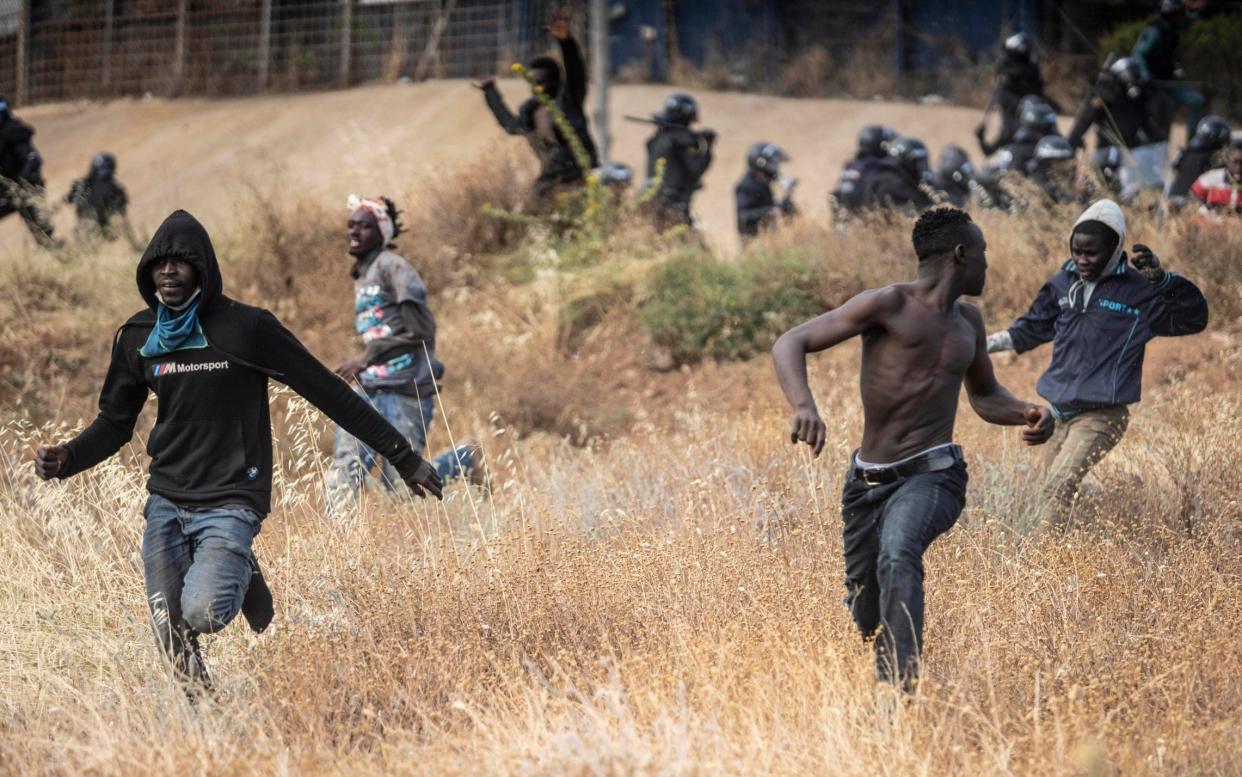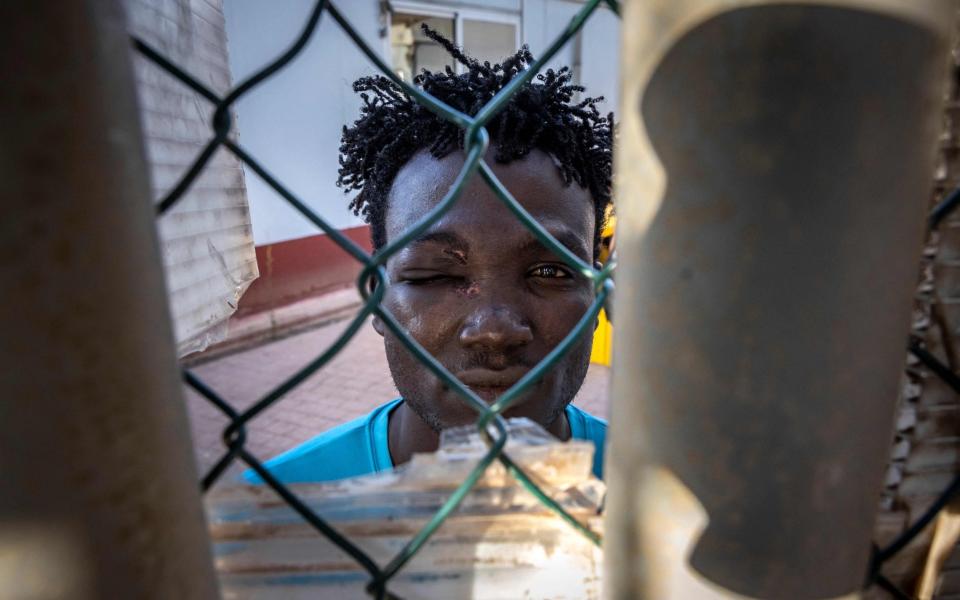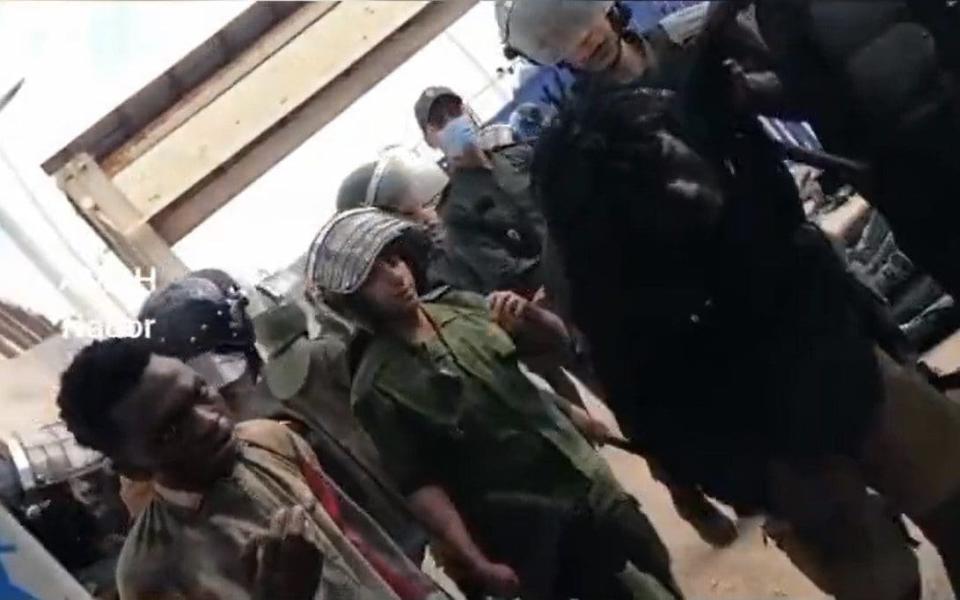Migrants 'beaten' in fatal crush as they stormed border into Morocco's Spanish enclave

Shocking images of broken and bloody bodies strewn on the ground by the border fence between Morocco and the Spanish enclave of Melilla have drawn demands for an investigation into the deaths of at least 23 migrants.
Footage obtained and posted on social media by Morocco's AMDH human rights association shows several dead bodies, as well as Moroccan police guarding an area where injured and possibly dying migrants were held reportedly for hours after an assault on the fence on Friday.
AMDH reported that the death toll had reached 27, while others, including Walking Borders, an NGO that works to save the lives of migrants attempting to enter Europe in the Strait of Gibraltar region, said the real figure was at least 37.
Around 500 people cut their way through a Moroccan barrier near the Melilla border checkpoint known as Barrio Chino on Friday, local witnesses and migrants who took part in the attack have said.
They then found themselves stuck between the sturdier Spanish fence and pursuing Moroccan police.

Morocco's interior ministry said a "stampede" by migrants towards the Spanish border checkpoint caused a fatal crush.
But footage obtained by the online Spanish newspaper El Diario showed Moroccan security forces beating migrants after Spanish police had pushed back a group that was attempting to clear the fence.
AMDH has called for a thorough investigation and for the burial of the dead to be postponed. The group posted a photograph on Twitter on Sunday that it said showed graves being dug for the purpose in the countryside near the Moroccan city of Nador.
Whether or not the casualties were all crushed or some fell victim to police batons, the groups said: "The number of deaths rose due to their being held at the site without treatment for hours".
'Blood everywhere'
"There was blood everywhere", Tareq, a local Moroccan man who did not wish to give his full name, told the Spanish newspaper El País.
"They had blood on their heads, skin ripped open, broken feet, broken hands... If they weren't dead already, they would end up dying because they had been beaten badly."
Another witness called Mamadou, who said he was one of more than 1,500 people who attempted to break into Melilla on Friday, added that there had been a series of clashes with Moroccan police in the preceding days as the migrants attempted to group together in preparation for the assault.
"The Moroccan forces threw a lot of stones and fired tear gas. Normally they fire it in the air but this time it was directed straight at people," he said.

A reporter for the Spanish newspaper El Mundo reported that he had briefly been able to enter the morgue in Nador where the dead were taken, and that the only body he managed to see had a severe blow to the head.
According to the Spanish government, 133 migrants managed to enter Melilla. Most of them were reported to be from Sudan.
Podemos, the Left-wing junior partner in Spain's coalition government, said the European Union should conduct an "immediate and independent" investigation into Friday’s events.
"Spain should reconsider its policy of externalising borders and blackmail from Morocco, which generates so much violence and suffering," said Pablo Echenique, Podemos’ chief spokesman in Congress.
Spanish Prime Minister Pedro Sánchez defended the Moroccan police, saying they had dealt with a "violent assault".
In March, Mr Sánchez's government changed its policy on Western Sahara, backing the Moroccan proposal of making the disputed territory an autonomous region within Morocco.
The move came after an uptick in migration from Morocco's borders and shores.

